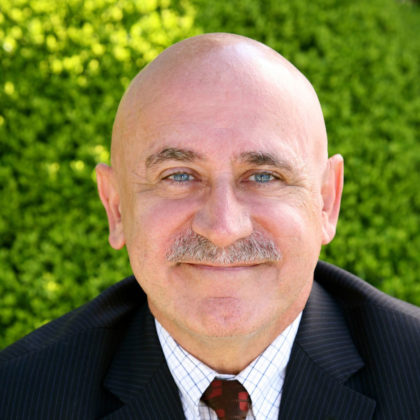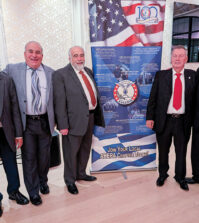AGONIZING PEACE by Jon Heymann
Finding peace after surviving a traumatic childhood in Greece
Jon Heymann has a distinguished career as a youth pastor in Jersey City, New Jersey and Newport, Rhode Island, and senior pastor for a dozen years with the Evangelical Free Church in New York. He holds a master’s degree in education from the University of Florida, and completed graduate work in psychology, and doctoral work at the University of North Florida. He is now president of Heymann Consultants, and recently created Elevate Jacksonville. Prior to this, he was the CEO of the Jacksonville Children’s Commission, which provided $38 million to support numerous child-serving non-profits.
He says his recent book, Agonizing Peace: Powering Through Traumatic Experiences, “is a result of my early childhood in Greece, my Pastoral ministry plus my decades of ‘marketplace ministry’ in the secular world of public education…God rescued me from a child mill (trafficking) and guided me through some other excruciating experiences. This and many other examples are used to provide hope and answers to the seemingly helpless and hopeless.”

Jon Heymann
Your book shares the story of how you grew up in a “slave mill.” What happened and how did you escape?
After World War II, Europe and many other countries were struggling with destruction, poverty, and chaos. Greece was no exception. Starvation and Nazi atrocities took the lives of over 100,000 Greek civilians, and as a result, the Greek children suffered greatly. People, for whatever reason, would drop infants off at an asylum. Some were their own progeny; some were kids that were just abandoned by their parents and someone else would bring them to this Municipal Infants Asylum. Some children were a public embarrassment to a clandestine relationship. I was one of those children who was dropped at the asylum through a breadbox where the relief groups would drop off food and clothing for the children inside the asylum.
A breadbox slot?
The breadbox ‘slot’ on the outside of the building looked like an oversized mail slot that many people still have on their front doors, except this breadbox slot was large enough to fit a baby through it. Hence, we were called ‘breadbox babies’.
And the doctors at the asylum were complicit in trafficking the children?
The doctors at the asylum forged death certificates when the children were old enough to be rented or sold to local men and women who ran a lucrative business ripping off tourists. If a family should happen to return to reclaim their child, the doctor would produce the death certificate and say that the child hadn’t survived. If no one came to claim the child, so much the better.
I have vivid memories of staying in a two-room house with a man and a woman who remain faceless in my memory bank. I was still sleeping in a crib at 4-years-old, and spent my time begging and/or stealing from people at the base of the Parthenon. I also remember being beaten if I didn’t produce the desired results.
How did you escape?
Fortunately, my escape came through the efforts of Spiros Zodhiates and the American Mission to the Greeks. Lois Heymann volunteered for AMG and was so moved by the circumstances of these children that she volunteered to be the first to attempt to adopt one or more of these children. My adopted sister and I were the first to be taken out of this devastating situation.
How did you see your new freedom?
I have no memory of getting on a plane to come to America, but I do remember being on the airplane and the basket that sat next to me with a baby in it. That baby became my sister here in America, but she was not my blood sister. Although my parents paid for a nurse to accompany me, there was no adult present. I was alone, on an airplane, with a baby in a basket. I didn’t understand the language, I didn’t know where I was, and I certainly didn’t know the people who seemed so happy to see me.
How long did it take you to overcome some of your trauma?
It took two years before I would let any adult hug me. It took two years for me to believe that if an adult touched me, they wouldn’t hurt me. Two formative adolescent years. I recall throwing a metal dump truck at my aunt when she approached me to give me a hug. I finally allowed my mom (Lois Heymann) to hug me in the kitchen of our NJ home, and I stood like a board with my hands by my side as she wrapped her arms around me for the first time. I had finally found my “Love Family” because my “Blood Family” gave me up at birth. Some people are blessed to have both a “blood family” and a “love family” – at least I acquired the most important one.
You say you deeply dislike the word ‘suffering.’ Why?
The word ‘suffering’ is overused much like the word ‘awesome’. It can be used to describe a stubbed toe or a chronic debilitating disease. Many times, those who cry the loudest are not hurting the worst. (See Chapter 3 of my book). I describe those who “suffer” serious chronic depression, and how to garner “peace” in the midst of this debilitating destructive disease.

What do you mean by the idea of “effortless peace?” Is there such a thing?
Effortless peace exists in the minds of those that long for peace that takes no effort. In Eastern religion it’s called Nirvana (Passionless Peace), however the Western version is slightly twisted and results in effortless peace, a sort of “Give me more and leave me alone,” which grows out of the addiction to the almighty American Trinity – Health, Wealth, and Wisdom..
Many people, even Christians, believe that Peace with God means they can slide through life with few troubles. Do you believe this?
None of us are immune to traumatic experiences. IF you haven’t had one, then you simply have not lived long enough. Some experience are more difficult and more excruciating (ie. loss of a child, a marriage, a job, a limb, etc), but all trials are subject to interpretations and personal beliefs. No one can judge another’s circumstances. No one can prepare us for every trial that may come our way, but peace is possible and sustainable.
You say, “our salvation becomes a contract for serenity and an undisturbed life.” Is this a false understanding of what it means to follow Christ?
Yes, this is a lopsided view of Peace, of God, and of our expectations.
You were adopted by a Christian family from America. Is your sense of patriotism strong today?
Yes! I am an American without a hyphen. At the same time, I am very proud of my Greek heritage, while at the same time very angry (righteous indignation) with those who mistreated and abused me as a young boy I was naturalized as an American citizen in a New Jersey Courtroom at the age of ten. I still have the small American flag that the ‘man in flowing robes’ personally handed to me as I pledged my honor and life to my new homeland. While my childhood idealism of now living in the greatest nation on earth has given way to an embattled realism that no nation is perfect, my sense of patriotism is stronger today than it was when I was ten.
What do you mean by, “poverty is not a family value?”
The concept of a Biblical family does not include “poverty” as a virtue. At the same time, we are not called to live in opulence while a great number of children do not know where their next meal is coming from.
You write that affliction “levels us all.” How does this fit into God’s plan for building our faith?
According to Romans 5, suffering brings about perseverance; and perseverance, results in character; and proven character, hope. It is like a stress test on automobiles, that tests it’s capacity to withstand stress and strain.
Your book makes it clear that true peace comes through surrender. Surrender to what?
“Surrender to who?” is a better question. Surrender to a God that does not provide ALL of the answers can be frustrating, but surrendering to our own limited perspective answers none of the looming questions that often plague us.
“Surrender” often means to loose power and dominion, but surrendering to God actually increases our power (II Tim 1:7) and self-discipline. Remember, if we knew everything about God, He wouldn’t be much of a God.
Why do you say, “lingering doubts are different from lingering questions?”
Lingering doubts are far more serious than lingering questions, in that they last a lot longer and have much more serious ramifications in our lives.
Toward the end of your book, you suggest readers learn to expect the unexpected. Why?
Even Jesus said, “In this world, Expect trouble.” But he prosed us that we need not be discouraged because He has overcome the world that gives us so much unexpected “trouble”, pain and heartache. There is also the converse, in that we should expect the unexpected – the good things of life that can only be attributed to God – those things that we can confidently exclaim, “It was a God thing”.
Any final advice for those who have suffered trauma, or for those who live with someone who has suffered?
Never give up – Never, ever give up – on your family, on your marriage, on your children, on your church, on your health, and on your friends.
Pray as if it all depends on God, and work as if it all depends on you!!















0 comments